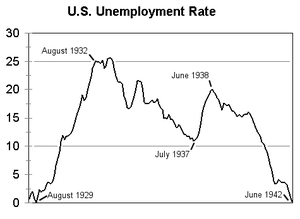Think of this as Volume 17, Number 37 of the newsletter I have written weekly since March, 1997. Enjoy.

This caused me, while still on our cruise ship, to write the following, which I now offer to the rest of you in hopes it helps, just a little, with those struggling to write good fiction:
Dear Robin:
Fiction is hard. Wish I could do it
better.
Anyone who starts in to write fiction is in for a lot of hard work. Creating worlds, stories, and people who never really existed is the most difficult task you can imagine — it is a feat of pure imagination. Anyone who does it, anyone who succeeds at it, becomes a hero in my book.
Here is what I've learned, and often
failed to apply, in writing fiction.
-
There are three elements in any
story – description, action, and dialogue. They need to be
balanced. You need to start with action, minimizing dialogue and
using specific description to put your reader into the story. Here's
an example. I'm not on a cruise ship. I'm in the tea room of a
cruise ship, waiting for my jasmine to brew, and looking past the
liner of a Qatari sheikh toward a street lined with banks, bars, and
tourist traps, presided over by a huge poster of the rapper 50 Cent.
Mr. Cent once made a deal with rival rapper Kanye West, saying that
whichever artist’s next album sold worse would quit the business.
West is now married to a Kardashian. Cent is playing Alusand. See? -
Outlines work. Rather than
just going in and writing, as I once did, I have found that an
outline of the action makes for better storytelling. An outline
gives you a skeleton your words fill in, it frees you from worrying
what might happen next, and it prods you to make that next thing
happen. The more detailed the outline, the easier the writing. If
you can move in your writing between files containing outlines and
those you're filling in with detail, you'll find that writer's block
goes away. They say Isaac Asimov kept an office room lined with
typewriters 50 years ago, paper to each one's left, manuscript to
each one's right. He would look at the first typewriter, think of
what should go next, and start writing, following his outline, until
he ran out of inspiration. Then he'd go to the next typewriter, and
the next and the next, until he was tired. When PCs came along
Asimov was in heaven. -
Always be rewriting. Before
writing anything new, I always go through what I've written lately
and rewrite bits of it. This gets my head into a space for writing
forward, and focuses me on the process, which for all writers is the
most important thing. For readers, the process of reading takes
precedence, and they want stories that follow those rules I
mentioned, about pace and specifics and all that. For writers, it's
the process of writing that takes precedence, and your ability to
bend all rules to suit yourself, to make the process of writing
yours, is what makes you a disciplined writer and, in time, a good
one. -
Copy, copy. Copy. Every
writer, when they start out copies others' work. Often they do this
very badly. When I was starting out I copied Jimmy Breslin
slavishly, along with an obscure Indianan named Jean Shepherd, and
another named George Ade. As I found more writers I copied them.
Gradually my own style emerged, forged by practice. Yes, it's like
playing the piano. You have to write a lot of bad stuff before
anything good comes out, and what's good is not for you to
determine, because once it's gone it's going to seem bad. -
Start with what you know. I
like that you've put yourself into your fan fiction, and that you've
started with fan fiction, because these are imaginary worlds which
you understand and relate to. This is a very good thing. I notice
that you're also applying elements of your own life to your stories,
which is also a very good thing. A few years ago your mom and I went
to a lecture given by Salman Rushdie, who was giving his papers to
Emory University. He had often been challenged about his work by
people who asked what in his life it related to. “There are two
answers to that,” he said. 'First, it's all a product of my
imagination, all stuff from my head,' which happens to be the truth.
The other answer is that, 'yes madam, of course it comes from my
life, and how observant of you to notice it.” Rushdie was saying
that a writer really starts to come into their own when their work
becomes divorced from their life, which in his case had only
happened very recently. He thought his papers were trash, that
writers' lives aren't worth reading, but he was taking the write-off
and laughing all the way to the bank. -
Your characters have lives,
which are different from yours. J.K. Rowling said she came up
with the entire plot of her seven “Harry Potter” books on one
train ride, and I believe her. The structure of a story, the story
of a character, can come to you in a flash. It's your job to catch
that lightning, to get it down, then to flesh it out, and to listen
to your character's life in the many ways they tell it – as
inspiration, as outline and as detail. This process of listening,
learning and getting it down is your life, and it's different from
the lives your characters live. It's better, often safer. I live two
lives – the lives inside my stories and the daily life I live at
home. Guess which matters more? Don't read a writer's biography –
read their stories, and the lives their characters have led. It's
all there. -
Forgive yourself. Nothing
comes out right the first time. Everything requires rewrite. And
what you wrote last year, or five years ago, may look like shit to
you now. That's how I feel about my stuff – I'm embarrassed by it.
It's the work that counts. Getting the work out, getting it done,
hitting send and (I freely admit it) cashing the checks, these are
the moments you live for. Writing is damn hard work. You are pulling
stuff out of your head that never existed before, and turning it
into characters who live and breathe and that readers can relate to
as they relate to their own family and friends. Good writing is a
miracle, and it doesn't happen every day. If it didn't happen for
you today, don't worry. Like we say in Atlanta, tomorrow is another
day. -
Your Own Voice Will Come. This
is the most important point of all. Your authentic voice will come
with time, the kinds of stories you were meant to tell will come
with time. You have to wait for it, write every day, write a lot of
very bad stuff, and let others be the judge of it, not you. Listen
to your words as you write them, and gradually you'll become a
story-teller. You will learn, as Rushdie wrote in “Haroun,”
what's the point of stories that aren't even true.”










